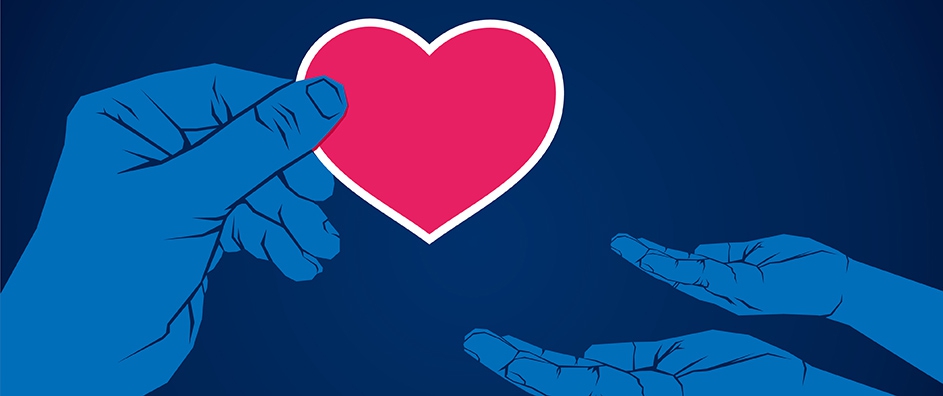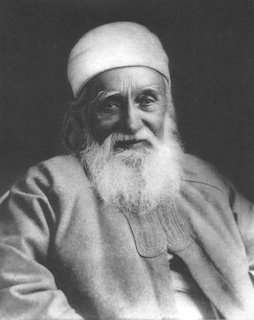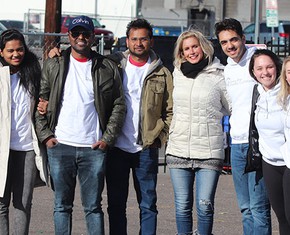The views expressed in our content reflect individual perspectives and do not represent the authoritative views of the Baha'i Faith.
What wisdom can you find that is greater than kindness? – Jean-Jacques Rousseau
Philosophers, writers, and all of the world’s great Faith traditions praise kindness. The Dalai Lama said: “My religion is very simple. My religion is kindness.” Confucius said: “Forget injuries; never forget kindness.”
This quote from the Baha’i writings likens kindness to a magnet, a powerful lodestone that attracts people’s hearts:
A kindly tongue is the lodestone of the hearts of men. It is the bread of the spirit, it clotheth the words with meaning, it is the fountain of the light of wisdom and understanding. – Baha’u’llah, Gleanings from the Writings of Baha’u’llah, p. 289.
In discussing kindness, we can think about it as both words and deeds. True kindness should include both aspects. Can you imagine what it would look like if people spoke kindly, but their body language or actions revealed something entirely different? Perhaps, for example, a person says hello, but with no smile or friendly expression. Conversely, imagine something like this: people smile and wave to each other, but then they speak harshly about the other person when they leave each other’s presence.
In these scenarios, we can see an obvious incongruence, a mismatch between their deeds and their words. Being genuinely kind, then, would seemingly require that a person’s speech and behavior match each other. Making sure our words and deeds not only express kindness, but that they also match, can present a difficult inner challenge.
But what should we do if we encounter a person who is not kind to us, whether in deeds or words (or both)? Consider this Baha’i quote from Abdu’l-Baha:
Think ye at all times of rendering some service to every member of the human race. Pay ye no heed to aversion and rejection, to disdain, hostility, injustice: act ye in the opposite way. Be ye sincerely kind, not in appearance only. Let each one of God’s loved ones centre his attention on this: to be the Lord’s mercy to man; to be the Lord’s grace. Let him do some good to every person whose path he crosseth, and be of some benefit to him. – Selections from the Writings of Abdu’l-Baha, p. 3.
Our aim should be sincere kindness–“not in appearance only.” Whether we encounter disdain, rejection, or hostility, the Baha’i teachings advise kindness in every situation. Rather than random acts of kindness (although still a great idea), this Baha’i ideal infers that we try to go even further and act kindly to every person we come across.
One of my favorite stories about Abdu’l-Baha centers around kindness, and it provides an excellent example of his deeds matching his words:
There lived a man who treated Abdu’l-Baha with tremendous hatred, enmity, and unkindness. This man spoke negatively about Abdu’l-Baha to others, attempted to turn others against him, and when he encountered him on the street, this unkind man held his robe in front of his face as he passed Abdu’l-Baha.
How did Abdu’l-Baha respond to these displays of enmity? He knew this man was very poor and often needed clothes and food; so he gave him both. Although the man accepted and used these gifts without either gratitude or thankfulness, it didn’t stop Abdu’l-Baha’s benevolence and generosity.
When the man became ill, Abdu’l-Baha provided the services of a doctor. Additionally, he brought him money, food, and medicine. Still, the man wouldn’t befriend or look at Abdu’l-Baha — “as he held out one hand that the physician might take his pulse, with the other he held his cloak before his face that he might not look upon [Abdu’l-Baha].” – The Wisdom of the Master, p. 10.
Despite the man’s hurtful actions, Abdu’l-Baha continued his kindliness toward this man for twenty-four years, and the man continued with his enmity toward him.
Finally, an amazing thing happened. One day the man arrived at Abdu’l-Baha’s door and fell at his feet, crying:
“Forgive me, sir!” he cried. “For twenty-four years I have done evil to you, for twenty-four years you have done good to me. Now I know that I have been in the wrong.” – ibid, p. 10.
To which Abdu’l-Baha responded by urging the man to stand. Thus began their friendship.
I know no better story to illustrate the wisdom in kindness than that beautiful one I just shared about Abdu’l-Baha’s twenty-four years of remarkable patience, generosity, and sincere and persistent kindliness. What a glorious world we could all inhabit if we could follow Abdu’l-Baha’s example of extreme kindness.

















Comments
Sign in or create an account
Continue with Googleor